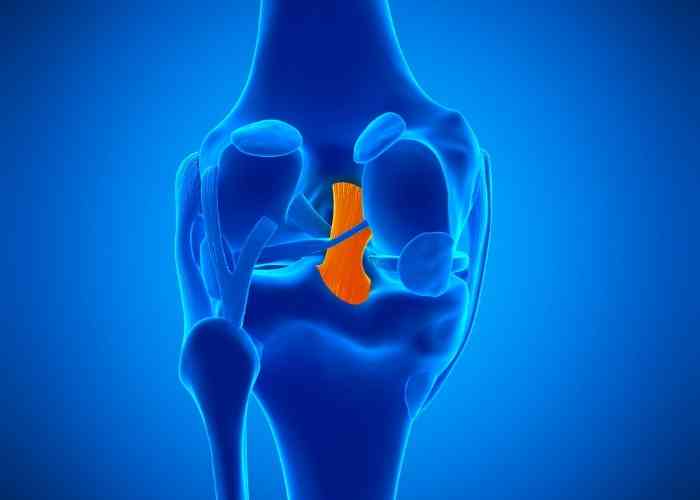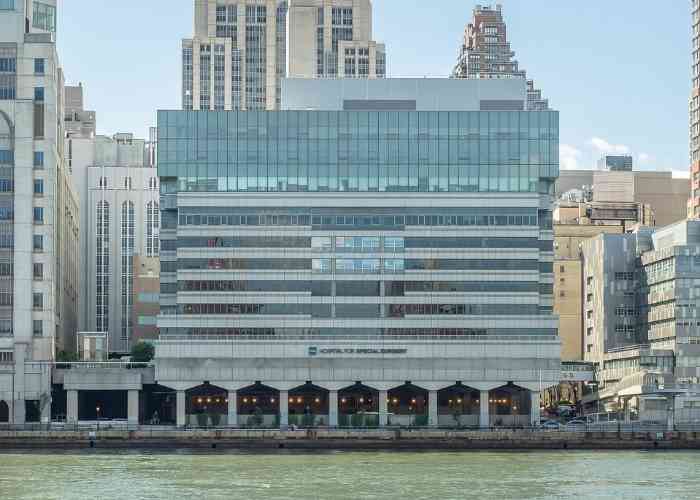What is a posterior cruciate ligament injury?
The posterior cruciate ligament (PCL) is attached to the front of the femur (thigh bone) and travels through the center of the knee behind (posterior) the anterior cruciate ligament (ACL) to the back of the tibia (shin bone). These ligaments form an “X” and, together, play an important function in limiting forward and backward movement of the tibia. The PCL is formed from two parts that combine into the strongest of the four main knee ligaments approximately the size of one’s little finger. Due to its strength, the PCL is not injured as often as the other knee ligaments; although, a substantial force to the anterior knee and shin can damage this ligament. Athletes involved in contact sports are more likely to experience a PCL injury. However, a motor vehicle collision or falling directly onto a bent knee can also produce a tear within the posterior cruciate ligament. Dr. Answorth A. Allen, an orthopedic knee specialist serving patients in Manhattan, New York City, Westchester, Long Island and surrounding areas, has the knowledge and understanding, as well as substantial experience in treating patients who have experienced a PCL injury.

Are there different degrees of a PCL injury?
PCL injuries, similar to other ligament injuries, are graded on the severity of damage sustained by the posterior cruciate ligament and assigned one of three classifications.
- Grade 1: Minimal damage to the ligament from being pulled or stretched; the joint remains stable.
- Grade 2: The ligament partially detaches from being stretched. This injury results in a partial tear, or PCL sprain, and the knee joint remains generally stable.
- Grade 3: The ligament is torn into two separate pieces, also known as a rupture. The knee is no longer stable with a complete PCL tear.
What are the symptoms of a PCL injury?
Damage to the posterior cruciate ligament is often a secondary injury as a result of significant trauma to the knee; it is rare that only the PCL is damaged after a traumatic event. It is important to consult an orthopedic knee specialist if a PCL injury is suspected. Common complaints of a PCL injury include:
- Pain along the outside of the knee, especially when increasing speed on a run
- Difficulty walking downstairs or slowing down on a run
- Swelling
- Difficulty with pivoting or twisting the affected lower leg
How is a PCL injury diagnosed?
A comprehensive medical history and thorough physical examination will be obtained by Dr. Allen. During the physical examination, Dr. Allen will evaluate knee stability through a number of tests involving the affected lower leg. Diagnostic imaging, such as x-rays and magnetic resonance imaging (MRI), may be needed to determine the extent of a PCL injury as well as identify any damage to the other structures within the knee complex.
What is the treatment for a PCL injury?
Non-surgical treatment:
Conservative therapy may be sufficient to resolve a posterior cruciate ligament injury if no other structures within the knee complex were involved. Rest, ice, compression, and elevation (RICE), as well as a specialized brace to provide stability and avoiding weight-bearing can aid in proper healing of the ligament. Non-steroidal anti-inflammatory medications can be taken as directed to diminish the pain and swelling associated with this condition. Once Dr. Allen determines it’s safe, a physical rehabilitation program to restore range of motion and strength to the knee will be prescribed.
Surgical treatment:
When other ligaments or structures of the knee complex are involved in a PCL injury, or in the event conservative therapy is unsuccessful, surgical intervention may be needed to restabilize the knee joint. A torn PCL is surgically reconstructed using a tendon graft, either from the patient (autograft) or donor tissue (allograft). A tunnel is drilled into the femoral and tibial attachments of the native PCL and a graft is passed through the tunnels and secured using surgical screws or anchors.
PCL Injury Specialist

Have you experienced a recent traumatic injury such as a motor vehicle accident or a fall? If so, you may have experienced a PCL tear. PCL tears range in severity and can cause difficulty walking, pain, and swelling. In more complex cases, surgery may be the best treatment option. Knee specialist Doctor Answorth Allen provides diagnosis and personalized treatment plans for patients in Manhattan, New York City, Westchester, Long Island and surrounding areas. For more information, contact Dr. Allen’s team today!






